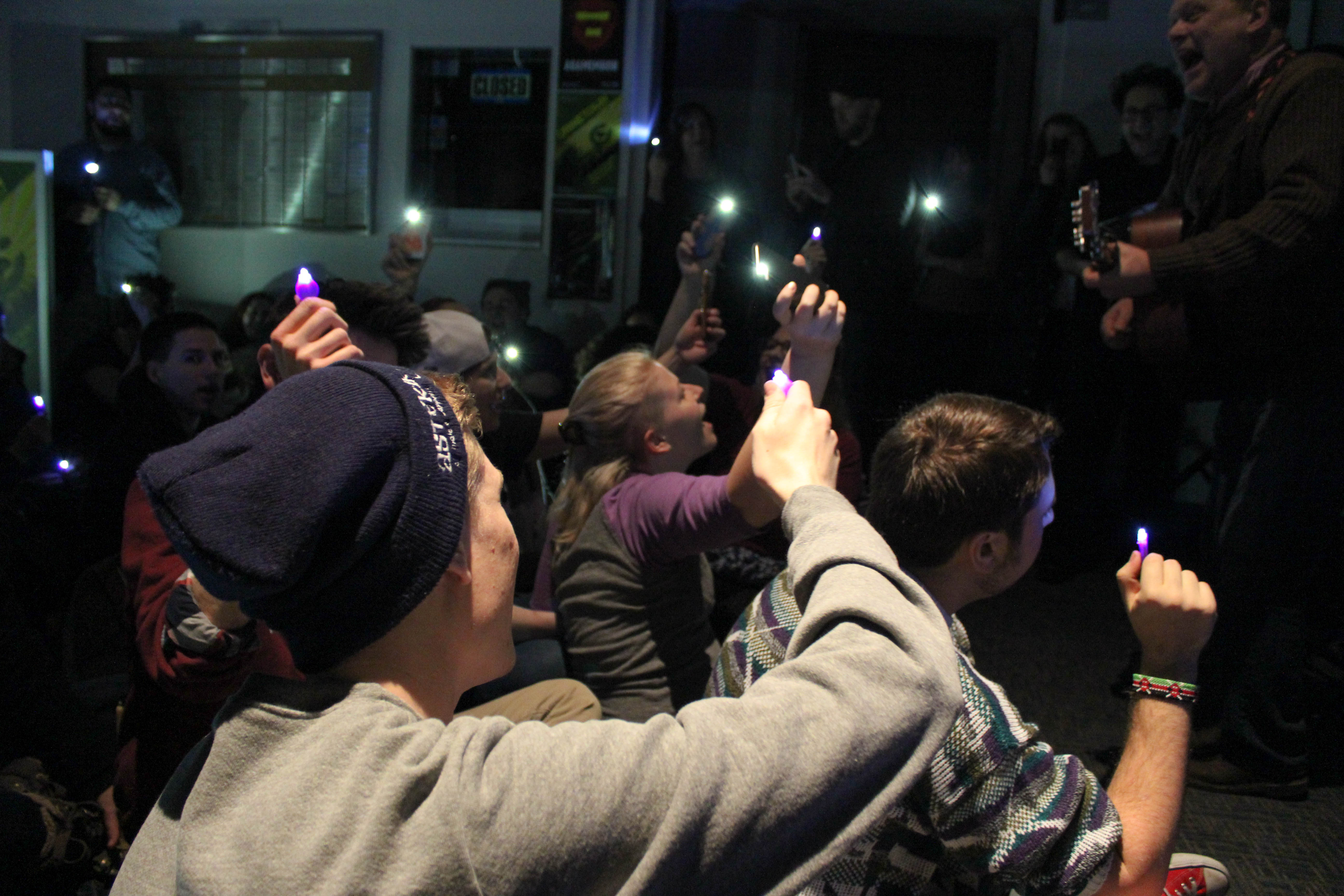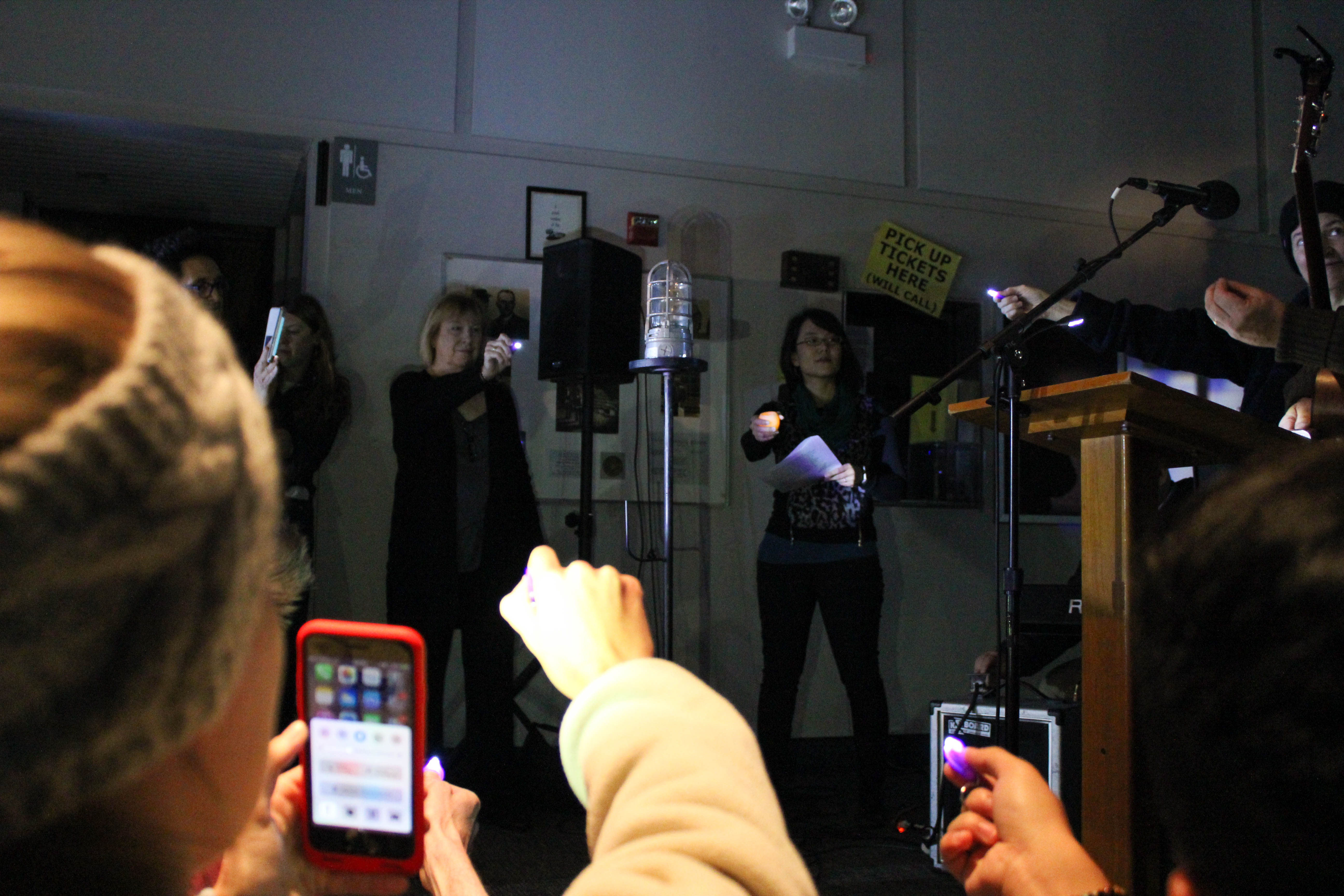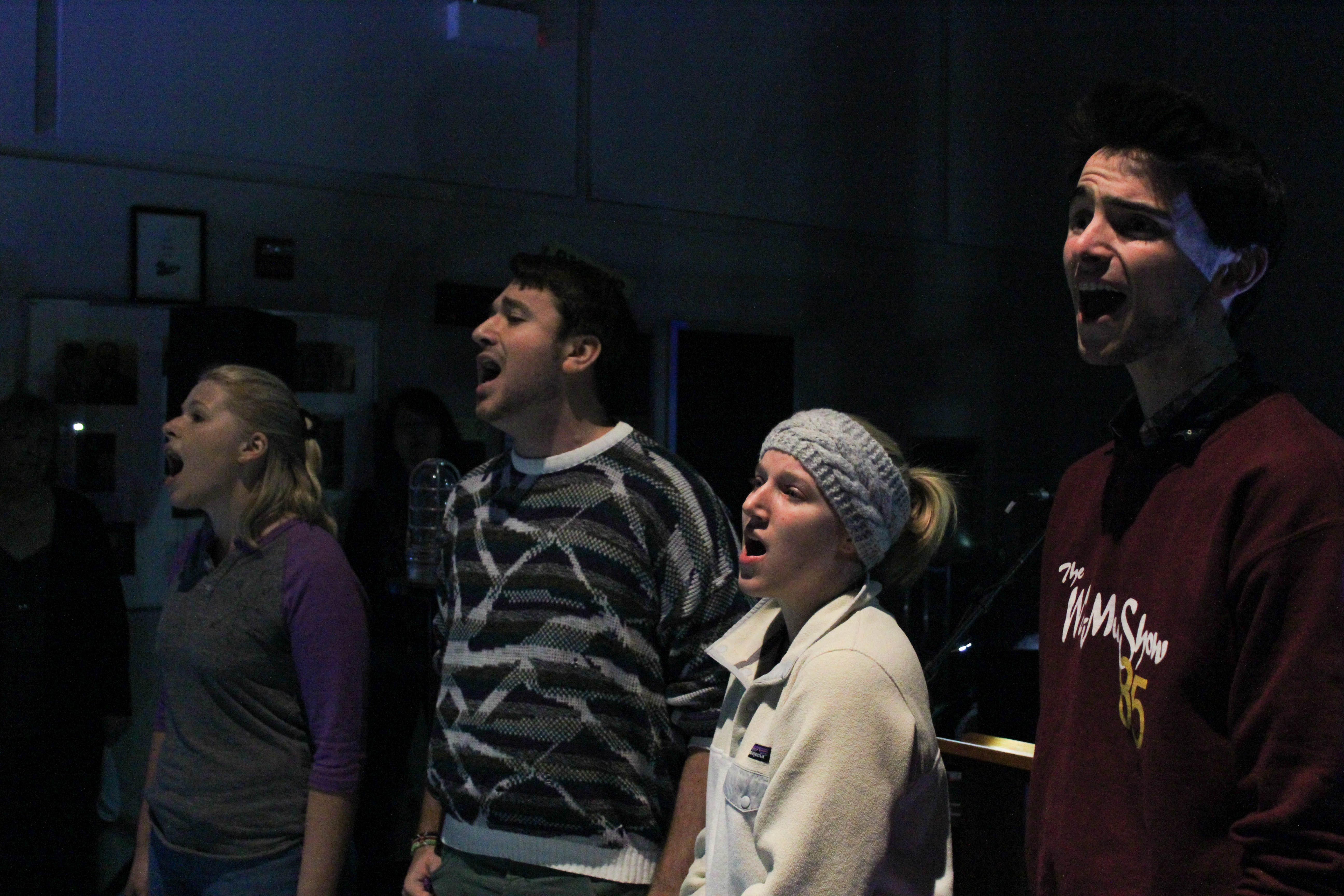The tradition of leaving a “ghost light” in an unoccupied theater reaches far back into theatrical history, and carries with it a fair amount of superstitions; although its practical use is to prevent accidents in a pitch-black theater, superstitions associated with the tradition often specify that it is meant to appease the resident ghosts.
Northwestern theatre students and faculty, along with thousands of others across the country, added a modern twist to this age-old tradition Thursday night as they packed into the lobby of the Wirtz Center for the Performing Arts for the Ghostlight Project, a nationwide effort meant to create light for “the challenging times ahead” on the eve of the Presidential Inauguration.
“In all 50 states and D.C., people have gathered just as we have,” Jessica Thebus, Director of the MFA Directing Program in the School of Communications, told the crowd. “Tonight the theatrical community joins in solidarity through our shared commitment to greater inclusion, participation, and compassion in our theatres and our communities.”
Faculty handed out small purple flashlights to those in attendance, which included students, faculty, alumni and other passionate community members. At exactly 5:30 p.m. CST, in accordance with theaters across the country, Thebus directed the crowd to shine their lights, illuminating the previously darkened lobby.
In the minutes to follow, associate professor Rives Collins strummed his guitar to lead those who had gathered in singing a folk song, teaching them line by line.
“It was really fun to see everybody singing,” Communication junior Caroline Scott said. “It was one of those moments where I was really reminded of how much I love this theatre community and how proud I am to be a part of it.”
Following the song, representatives from the Theatre Department, Wirtz Center and Waa-Mu show listed their respective organizations’ commitments to goals like connecting with charitable organizations, holding workshops on diversity and inclusion and creating safe and welcoming spaces for artists and audience members.
-lyrics from "Goal"
A quartet of members of the Waa-Mu show then stood to perform a song, "Goal," from the student-run production “Beyond Belief,” that they said felt “particularly appropriate for this moment in our country’s history.”
After the students finished the song, Thebus then took to lighting the eponymous “ghostlight,” a bulb inside a metal cage to her right, before she and Collins led a procession through the theater down to the paint shop, where a full reading of the U.S. Constitution was to take place.
Lee Conrads, an MFA directing student in the School of Comm, organized the reading, which she said was inspired by a conversation with her boyfriend in which both of them realized they had never read the Constitution.
“What I really want from this experience for us is not so much to perform the constitution, but for us to get a chance to listen to it,” Collins said.
Professor Billy Siegenfeld led the group in an energetic rendition of the Constitution’s preamble, performed in unison to the beat of stomping feet and snapping fingers.
A group of students and faculty then lined up to read each and every article, section and amendment (author’s note: the Constitution is long), cycling out to let others read.
“What struck me about this event when I was offered the opportunity to help out with it and when I was watching it was how we are embodying the constitution by speaking it in our present day,” Communication sophomore Alex Jackson said. “People of all different backgrounds in different gender identities, different races, everything coming together and reading it, embodies the constitution in a different way than just reading it on the paper would have.”
Alumnus Eric Simon (Speech ‘96) attended the event and stayed to hear the entire constitution being read, and reflects on the context of the gathering as being especially poignant in light of recent events.
“I think for me it is an important moment, especially today when we’re hearing that the NEA [National Endowment for the Arts] may be completely cut from next year’s budget,” Simon said. “It’s important for us to take a stand for the arts, and to realize that a society without art is no society at all, and we have to stand for the voice that the arts represent; we have to provide voices for those who are being suppressed, and will be suppressed in the coming years.”




